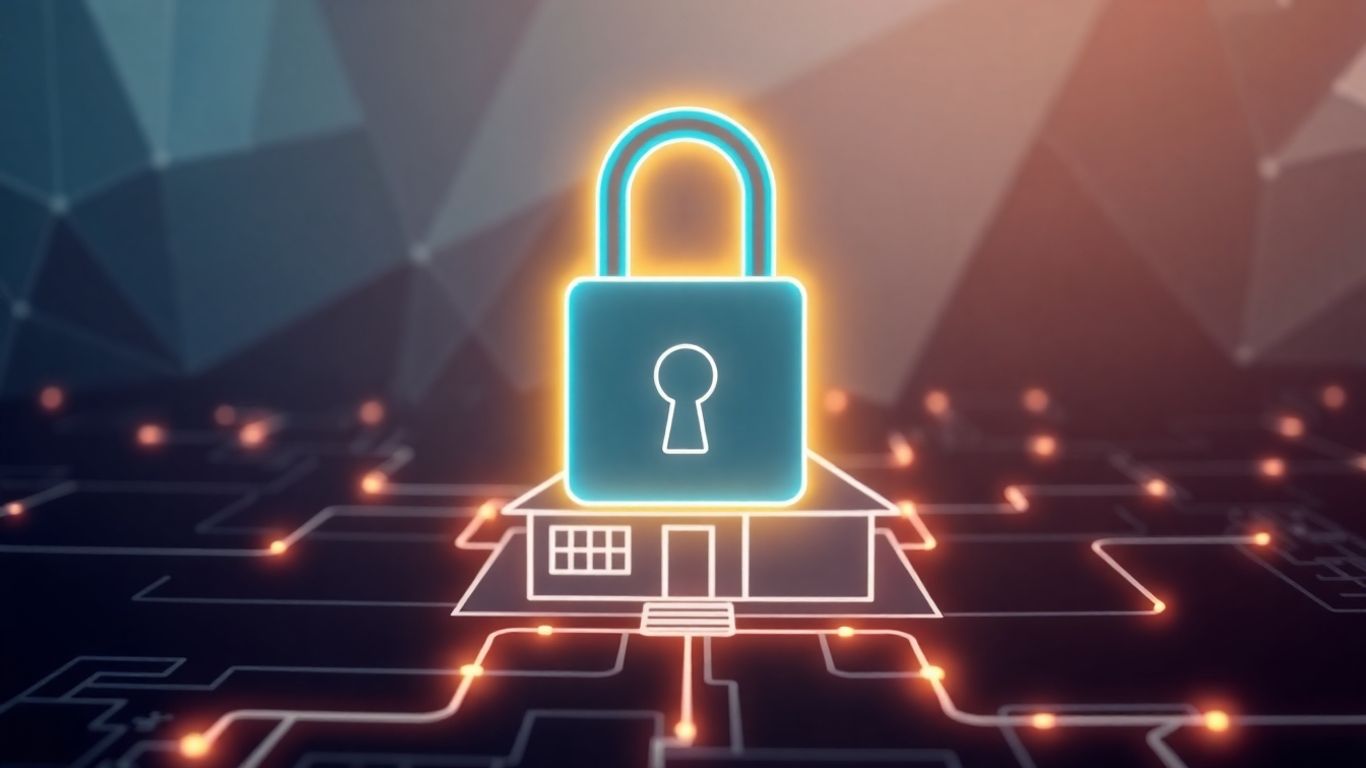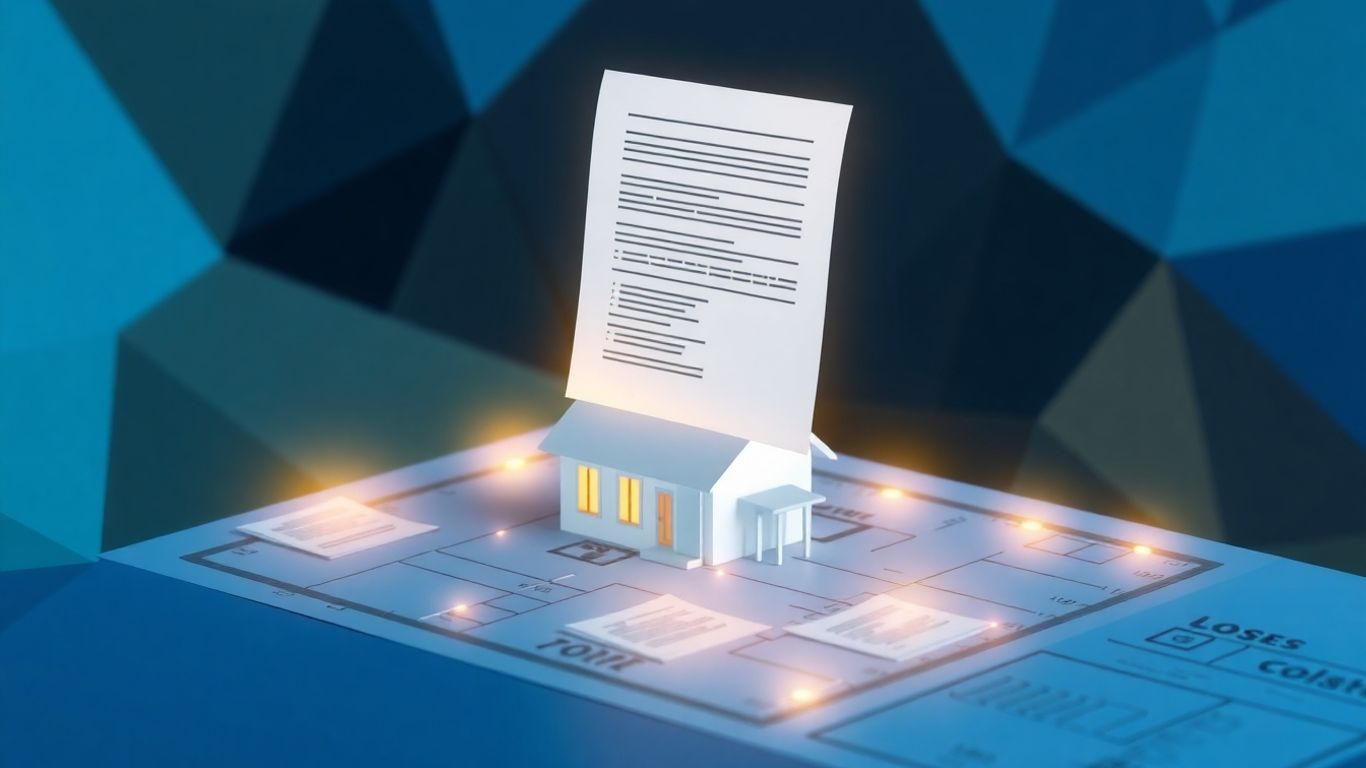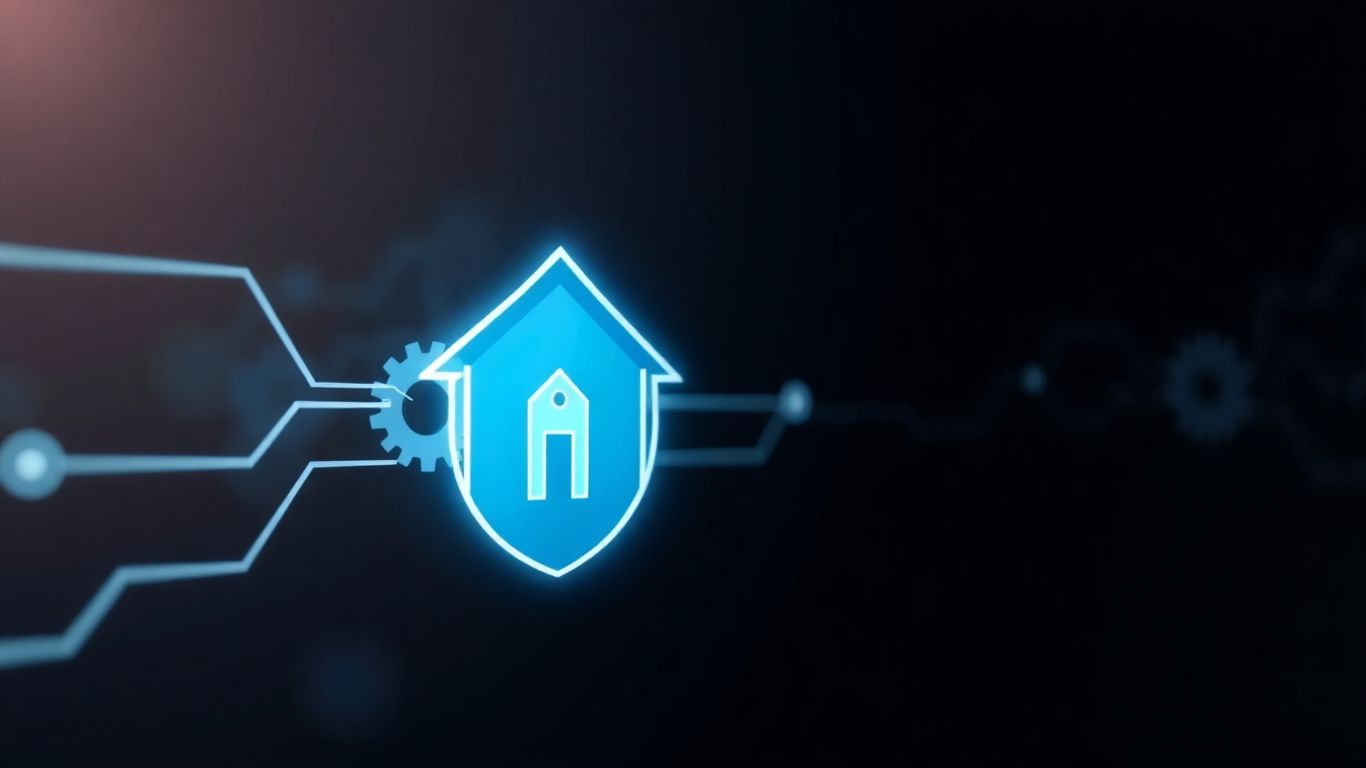Buying property can feel like a maze, right? You've got contracts, paperwork, money changing hands – it's a lot. Title insurance is supposed to be that safety net, making sure everything's legit with the property's ownership. But what if technology could make the whole thing simpler and safer? That's where smart contracts and blockchain come in. They're starting to change how title insurance works, making things faster and more secure. Let's look at how blockchain-based title insurance is shaking things up.
Key Takeaways
- Smart contracts can automate many steps in buying property, like signing deals and checking titles, making the process quicker and less prone to errors.
- Using blockchain for property records creates a permanent, unchangeable history of ownership, which really helps prevent fraud.
- Smart contracts can handle tasks like holding funds in escrow automatically, making sure money is released only when all conditions are met.
- New tech like AI and IoT is being combined with blockchain to get better property assessments and real-time monitoring, boosting security.
- The move towards blockchain-based title insurance means companies might shift from just insuring to verifying, potentially lowering costs and creating new services for everyone involved.
Streamlining Property Transactions with Blockchain

Property deals have always felt a bit like navigating a maze, right? Lots of paperwork, waiting around, and hoping everyone’s on the same page. Well, blockchain technology is starting to change all that, making things way more straightforward. It’s like swapping out a dusty old filing cabinet for a super-organized digital system. This shift is all about making the buying and selling process faster, safer, and more transparent for everyone involved.
Automating Purchase Contracts
Think about the traditional purchase contract. It’s a big document, full of conditions and deadlines. With blockchain, these contracts can become smart contracts. These are basically self-executing agreements where the terms are written directly into code. When certain conditions are met – like a buyer’s funds clearing or an inspection report being approved – the contract automatically triggers the next step. This means things like transferring ownership can happen much quicker, sometimes in hours instead of weeks. It cuts out a lot of the manual back-and-forth that usually slows things down.
Enhancing Title Search and Verification
Finding out who really owns a property and if there are any hidden claims against it can be a real headache. Traditional title searches involve digging through old records, which takes time and can sometimes miss things. Blockchain offers a different approach. Because ownership records are stored on a distributed ledger, they are permanent and easy to access. This means a complete history of who owned the property and when can be pulled up almost instantly. It’s a huge time-saver and makes the verification process much more reliable. This improved title verification is a game-changer.
Securing Fund Transfers
Moving money around in a property deal usually involves escrow agents and multiple bank transfers, which can be slow and carry risks. Smart contracts on a blockchain can handle fund transfers automatically and securely. Once all the conditions of the sale are met, the smart contract can release the funds directly to the seller. This process is recorded on the blockchain, creating a clear and unchangeable record of the transaction. It reduces the need for intermediaries, cutting down on fees and the chance of errors or fraud.
The Role of Smart Contracts in Title Assurance
Smart contracts are really changing how we think about title insurance. Basically, they're like digital agreements written in code that live on a blockchain. When certain conditions are met, the contract automatically does what it's supposed to do. This takes a lot of the guesswork and manual work out of property deals.
Automated Escrow Services
Think about escrow. It's that middle step where money and documents are held until everything in the sale is finalized. Traditionally, this involves a third party, which can add time and cost. Smart contracts can act as that neutral party, but in a digital, automated way. They hold funds securely and only release them when all the agreed-upon conditions are met, like the title being cleared or all necessary documents being signed. This makes the process much more straightforward.
- Funds are held securely until conditions are met.
- Automated release of funds speeds up the transaction.
- Reduces the need for a human intermediary.
This automated escrow function means less chance of delays or disputes because the rules are coded directly into the contract. It’s all about making sure everyone does their part before any money changes hands.
Efficient Closing Document Processing
Closing day can be a whirlwind of paperwork. Smart contracts can help here too. They can automate the preparation and even the signing of many closing documents. Imagine contracts that automatically populate with property details and buyer/seller information, then get digitally signed once all prerequisites are confirmed. This cuts down on errors and makes the whole closing process much faster and less stressful for everyone involved.
Reducing Transaction Friction
All these automated steps – from escrow to document handling – work together to smooth out the bumps in a property deal. By removing manual processes and relying on code that executes automatically, smart contracts cut down on the time, cost, and potential for mistakes. This reduction in friction means faster closings and a more predictable experience for buyers, sellers, and even the title companies themselves. It's about making property transactions feel less like a maze and more like a clear path.
Transforming Title Records with Distributed Ledgers
Immutable Ownership Records
Think about property records like a big, old filing cabinet. It's full of papers, some are faded, some might be missing, and it's hard to know for sure what's what. Blockchain, on the other hand, is like a digital ledger that everyone can see, but no one can mess with. Once a property transaction is recorded on this ledger, it's there for good. It's like writing something in stone, but digitally. This means the history of who owned a property, from the very first owner to the current one, is permanently logged and can't be changed or deleted. This makes it super clear who the rightful owner is.
Transparent Transaction Histories
With traditional systems, tracking the full history of a property's ownership can be a real headache. You might have to dig through old documents, cross-reference different databases, and it can take days. Blockchain changes that. Every single time a property changes hands, that event is recorded as a new 'block' on the chain. These blocks are linked together chronologically, creating a clear, easy-to-follow timeline of ownership. Because the ledger is distributed across many computers, everyone involved can access this history, making the whole process much more open and understandable. It’s like having a public, uneditable diary for every property.
Preventing Title Fraud
Title fraud is a serious problem, where someone tries to illegally transfer ownership of a property. Traditional methods have weaknesses that fraudsters can exploit. Blockchain's design makes this much harder. Because records are immutable and distributed, trying to alter a title history would require changing it on a majority of the computers in the network simultaneously – a nearly impossible task. Each transaction is also cryptographically secured. This means that fake titles or unauthorized changes are incredibly difficult to pull off. It adds a strong layer of security that just wasn't possible before.
The shift to distributed ledgers means that property ownership information becomes not just a record, but a verifiable truth. This changes how we think about trust in real estate deals, moving from relying on intermediaries to relying on the technology itself.
Integrating Emerging Technologies for Enhanced Security
It's not just about blockchain and smart contracts anymore. To really lock down property deals and make title insurance super secure, we're seeing other cool tech get involved. Think of it like adding extra layers of protection to an already strong system.
AI-Driven Property Assessments
Artificial intelligence is starting to help figure out what a property is actually worth. Instead of relying solely on human appraisers, AI can look at tons of data – like recent sales in the area, property features, and even market trends – to give a really quick and pretty accurate valuation. This helps avoid arguments about property value later on, which can slow things down. It means fewer surprises when it comes time to transfer ownership.
IoT for Real-Time Monitoring
Now, imagine devices on the property itself sending information back. That's the Internet of Things (IoT) at work. Smart sensors could, for example, detect if there's been a major structural change, like a new addition or significant damage. This info can be automatically sent to the blockchain, updating the property's record. It's like having a property that tells you when something important changes, which could affect its title or insurance.
Digital Identity Verification
Proving who you are is a big deal in any transaction, especially with property. New systems are popping up that use digital IDs to confirm that the people involved in a sale are who they say they are. This makes it much harder for fraudsters to impersonate owners or buyers. It adds a solid layer of security and makes the whole process smoother because everyone's identity is confirmed quickly and reliably.
These technologies aren't just fancy add-ons; they're becoming necessary tools. They work together to build a more trustworthy and efficient system for property transactions, reducing the chances of errors or bad actors getting involved. It's about making sure the right people are involved and that the property's history is accurate and protected.
The Future Landscape of Blockchain-Based Title Insurance
So, what's next for title insurance in this whole blockchain revolution? It's not just about making current processes faster; it's about fundamentally changing what title companies do. We're looking at a future where the focus shifts from just insuring against problems to actively verifying and guaranteeing clear titles from the get-go. Think of it as moving from a reactive safety net to a proactive, digital seal of approval for property ownership.
Shifting from Insurance to Verification
Instead of just covering potential issues that might pop up later, blockchain technology allows for real-time, verifiable proof of ownership. This means title companies could become more like digital notaries for property, confirming the legitimacy of transactions as they happen. This shift could dramatically cut down on the need for traditional insurance policies, as the blockchain itself provides a high level of certainty. It's a big change, but one that could save everyone a lot of headaches and money.
New Service Offerings for Title Companies
With blockchain handling much of the heavy lifting in verification, title companies can explore new avenues. They might offer services like:
- Digital Property Passport Creation: Building secure, blockchain-based records for properties that include all transaction history, liens, and ownership details.
- Smart Contract Auditing: Ensuring that the smart contracts used in property deals are correctly written and secure.
- Cross-Border Transaction Facilitation: Using blockchain to simplify and secure property deals involving international buyers or sellers.
- Data Management and Security Consulting: Helping clients manage their digital property data securely on distributed ledgers.
The integration of blockchain isn't just an upgrade; it's a redefinition of the title industry's role. The focus is moving towards providing irrefutable digital proof of ownership and transaction integrity, rather than solely offering protection against future claims. This proactive approach promises greater efficiency and security for all parties involved in real estate deals.
Market Growth and Predictions
Analysts are pretty optimistic about this space. By 2027, it's predicted that around 35% of all title insurance transactions in developed markets will involve blockchain technology. Major players are already investing and running pilot programs, which suggests this isn't just a far-off dream. Some forecasts even suggest that by 2030, the market could be worth as much as $20 billion. Of course, regulatory bodies need to catch up, but that's happening too, with states gradually updating rules to accommodate these new digital property records. It looks like the next decade will be a busy one for blockchain in real estate.
Benefits for Stakeholders in Property Deals

When we talk about smart contracts and property deals, it's not just about the tech; it's about what it actually means for the people involved. Think buyers, sellers, and even the insurance companies themselves. Everyone gets a piece of the pie, and usually, a bigger, better piece than before.
Faster Closings for Buyers and Sellers
Remember those drawn-out closings that felt like they took forever? Smart contracts really speed things up. They automate a lot of the back-and-forth that usually slows things down. This means buyers can move into their new homes quicker, and sellers can get their funds sooner. It cuts down on the stress and uncertainty that comes with waiting around.
- Reduced waiting periods: Deals can close in days, not weeks or months.
- Less administrative hassle: Fewer documents to chase and sign manually.
- Quicker access to funds: Sellers get their money faster, allowing them to move on with their plans.
The traditional property closing process is notorious for its delays. These delays aren't just inconvenient; they carry real financial weight. Every extra day a deal lingers means more potential costs and lost opportunities for everyone involved. Smart contracts aim to cut through that red tape.
Reduced Costs and Premiums
Cutting out middlemen and automating processes naturally leads to lower costs. For buyers and sellers, this can mean lower fees and, for title insurance specifically, potentially lower premiums. Insurance companies can also see their own operational costs drop, which can then be passed on.
Improved Risk Assessment for Insurers
For title insurance companies, smart contracts offer a clearer picture of the risks involved. With immutable records and transparent transaction histories on the blockchain, insurers can verify ownership and past dealings with greater confidence. This leads to more accurate risk assessment, which can translate into better pricing and more robust policies. It's a win-win: insurers manage risk better, and policyholders can benefit from more competitive rates.
Wrapping It Up
So, it looks like smart contracts are really starting to change things in the world of title insurance. By automating a bunch of steps, from signing contracts to handling funds, the whole process gets quicker and, honestly, a lot less prone to errors. It’s not about replacing people entirely, but more about making the system work better for everyone involved. As this tech becomes more common, we can expect property deals to become smoother and more secure. It’s a big shift, and it’s happening now.
Frequently Asked Questions
What exactly are smart contracts in simple terms?
Think of smart contracts like super-smart digital agreements. They're written in computer code and live on something called a blockchain. Once you set the rules, they automatically do what they're supposed to do when certain things happen, like when a payment is made. It's like a vending machine for agreements – put in the right input, and you get the agreed-upon output, all by itself.
How do smart contracts make buying a house faster?
Buying a house involves a lot of steps and paperwork, which can take a long time. Smart contracts can speed things up by automatically handling things like checking contracts, verifying ownership details, and even moving money around once all the conditions are met. This means fewer delays and a quicker process for everyone involved.
Can smart contracts help prevent fraud in property deals?
Yes, they can! Because smart contracts work on a blockchain, which is like a super secure and unchangeable digital record book, it's very hard for anyone to cheat or change things after they've been agreed upon. This makes the whole process more trustworthy and helps prevent fake claims or double-dealing.
What is a 'title' and why does it need insurance?
A 'title' is basically proof that you legally own a property. Sometimes, there might be hidden problems with ownership that you don't know about, like an old debt or a previous owner who still has a claim. Title insurance protects you and the lender from these unexpected issues that could cause you to lose your property or money.
Will smart contracts replace title insurance companies?
It's more likely that smart contracts will change how title insurance companies work. Instead of just insuring against risks, they might focus more on verifying information and making sure everything is correct using blockchain technology. This could lead to new services and possibly lower costs for buyers.
Are smart contracts and blockchain technology safe to use for big purchases like homes?
Blockchain technology is designed to be very secure and transparent. Smart contracts, built on this technology, automate processes in a way that reduces the chance of human mistakes and makes it difficult to tamper with records. While no technology is completely risk-free, these advancements are making property transactions much safer and more reliable than traditional methods.




